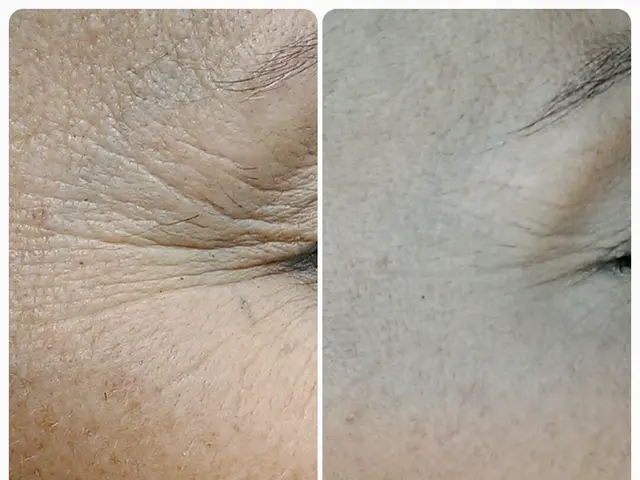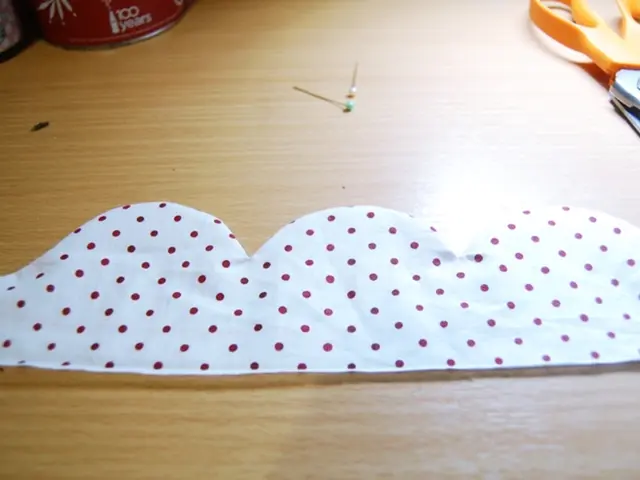Skin's Best Defense: Why You Shouldn't Hang Onto Last Year's Sunscreen
It's advisable to avoid using sunscreen that is a year old due to potential loss of effectiveness and possible degradation of its ingredients, which may not provide sufficient UV protection. - Consider ditching your old sunscreen for safety reasons and sun protection benefits this year.
Got a bottle of sunscreen lurking in your bathroom cabinet, ready to shield your skin from the sun's first scorching beams this spring? Not so fast. There's a chance that old sunscreen won't offer sufficient protection.
Most sunscreen packaging gives consumers an idea of how long they can use sunscreen post-opening. Look for the open jar symbol on the bottle, typically bearing "12 M" or a similar indication. Sunscreen is only good for up to 12 months after it's popped open. The manufacturer guarantees full effectiveness only for this period. Improper storage can speed up sunscreen's degradation, such as when it's exposed to intense heat or left in a hot car for long stretches.
Oxygen and Sunscreen's Downfall
Professor Eckhard Breitbart, a dermatologist, generally advises swapping out your old sunscreen for a fresh one. In an interview with "Apotheken Umschau", he explains: when you crack open the sunscreen bottle, oxygen seeps in. Oxygen caused oxidation that alters the ingredients and may hamper the protective function.
In a 2021 study, researchers from the Sorbonne and the national research agency CNRS discovered another issue with sunscreen containing the chemical UV filter, Octocrylene. With time, the molecule Benzophenone forms in the creams – a potentially carcinogenic substance that can also trigger allergies.
Benzophenone - A Hidden Danger in Some Sunscreens
The researchers analyzed 17 sunscreen products with an SPF of 50. Octocrylene was present in 16 of them. The scientists placed the sunscreens in an incubator for six weeks, keeping it at 40 degrees and 75% humidity. After these six weeks, the creams were in the same state as they would be after a year of storage at room temperature. The researchers found no benzophenone in the sunscreen without octocrylene. However, in the 16 sunscreens containing octocrylene, they found 39 mg/kg of benzophenone initially. After six weeks, the concentration nearly doubled to 75 mg/kg.
As per the consumer center NRW, mineral UV filters like "titanium dioxide" or "zinc oxide" are usually more stable and can be used for longer. You can easily tell if a sunscreen contains octocrylene by checking the list of ingredients – it's listed as "octocrylene".
References: Sorbonne study, Apotheken Umschau, Verbraucherzentrale NRW
- Sunscreen
- Sunscreen lotion
- Sunlight
Enrichment Insights
Factors Affecting Sunscreen Effectiveness
- Expiration: Sunscreen can last up to three years if stored properly (FDA requirement), but once it expires, its ability to block UV rays decreases, increasing the risk of sunburn and skin cancer[5].
- Environmental Factors: Sunscreen degrades faster when exposed to direct sunlight and high temperatures[5].
- Physical Degradation: Over time, sunscreen's physical properties may change, such as its texture or smell, indicating it's no longer effective[5].
Risks of Using Old Sunscreen
- Reduced Protection: Old sunscreen may not provide adequate protection against UV rays, thus elevating the risk of sunburn and skin cancer[5].
- Skin Irritation: Degraded ingredients might cause skin irritation or allergic reactions.
- Inadequate Broad-Spectrum Protection: Older sunscreens may not offer the same level of broad-spectrum protection as newer formulations, designed to guard against both UVA and UVB rays[3].
- The Commission has also adopted a proposal for a directive on the protection of workers from the risks related to exposure to ionizing radiation in the context of various professions, such as healthcare and science.
- Maintaining a health-and-wellness lifestyle involves paying attention to skin-care, nutrition, and lifestyle choices, including the use of fresh sunscreen to protect skin from UV rays.
- In the home-and-garden space, proper storage of sunscreen products can help ensure their effectiveness in blocking harmful UV rays, just as proper gardening techniques ensure the health of plants.








